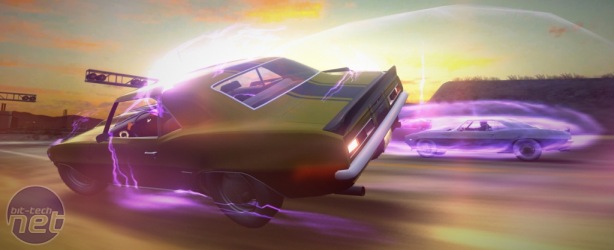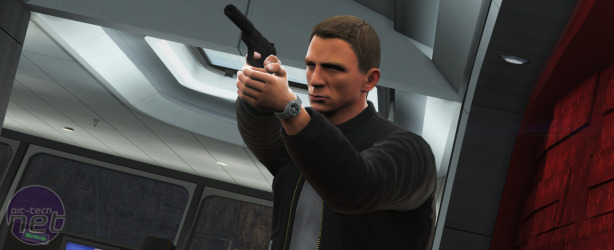Critical Hit: Activision's Bizarre Decision
January 30, 2011 | 09:53
Companies: #activision #bit-gamer

Critical Hit: Activision's Bizarre Decision
So, after giving 90-days' notice last November, Activision Blizzard has said it’s ‘exhausted’ all options and decided to close Liverpool-based studio Bizarre Creations. It’s the latest in a series of blows to the UK’s games industry, and one that will leave up to 200 staff out of work.How did it ever come to this?
The UK is home to some fantastically creative studios, including the likes of Lionhead and Media Molecule, but all have been under attack on a number of fronts over the past year. The promise of government support was snatched away thanks to the new tenants in Whitehall, despite warnings from publishers and industry bodies that such a move would be detrimental to one of the most important creative industries in the country. Meanwhile, studio-owning publishers have been relying on established core franchises to bring in the money during hard times, and new gaming platforms such as iOS and Facebook have come to the fore, adding a further disruptive element to the mix.
But there’s more to it, though. Far more.
Anybody who has been watching Activision’s strategy and attitude towards video games in recent years won’t have been too surprised by Bizarre’s closure. Since the 2007 formation of Activision Blizzard, the super-publisher has become all too keen to pump gamers with as many variants of three or four franchises as possible: Call of Duty, Guitar/DJ Hero and World of Warcraft have all been regurgitated more times than a starving cat’s fur ball. Okay, so Prototype is getting a sequel, and StarCraft II saw an eventual release, but aside from the surprising return of True Crime this year, 2011 is yet another year of terminal sequelitis for Activision Blizzard.
I’d understand the decision to close Bizarre Creations better if Activision Blizzard was undertaking a strategy for self-preservation’s sake. However, after announcing ‘better than expected’ profits of $745 million in its last quarterly financial briefing and ‘strong’ year-on-year growth, I’d have thought the executive team would have exercised more of an ‘invest for the future’ philosophy – and not pull the plug on one of the most talented UK studios for the past 20 years.
Blur may not have set the world alight at retail last May, but then again neither did Alan Wake or Split/Second, two of the other heavyweight debutants published around the same time. It was received highly by the gaming press, scoring a whole plethora of ‘8s’, with some regarding it as the first stiff competition against Nintendo’s Mario Kart franchise. Bizarre had even pledged to make Blur the biggest racing franchise in gaming, and I have no doubts that it could have at the very least become as successful as the studio’s PGR franchise. Let’s face it, the sequel really established that series thanks to its strong online presence.
A lack of investment in new ideas and franchises at the publisher has already seen the once great Tony Hawk franchise dramatically buckle and wane, and in recent years the even greater Guitar Hero series has become increasingly tarnished through overexposure. Activision seems committed to making the same mistake over and over.
It’s a strategy long since dropped by publishing rival Electronic Arts, which in the last three years has tried to inject some real innovation and investment into its games, spawning the likes of Dead Space and Mirror’s Edge in the process. Let’s not forget the EA Partners programme, either, which has seen a number of fresh titles published under EA’s banner, including Brutal Legend, Left 4 Dead and Crysis, plus the forthcoming debut title from Respawn Entertainment, founded by key members of Infinity Ward. EA learnt from its mistake of relying on annual updates and a small number of key franchises – when will Activision?
My only hope is that the staff now looking for work will find themselves in employment again soon, and will also help forge and mould new racing franchises over the coming years to prove that the decision to close their former studio was both wrong and bizarre.
Critical Hit is a twice monthly column that explores recent events in and around the games industry.

MSI MPG Velox 100R Chassis Review
October 14 2021 | 15:04











Want to comment? Please log in.